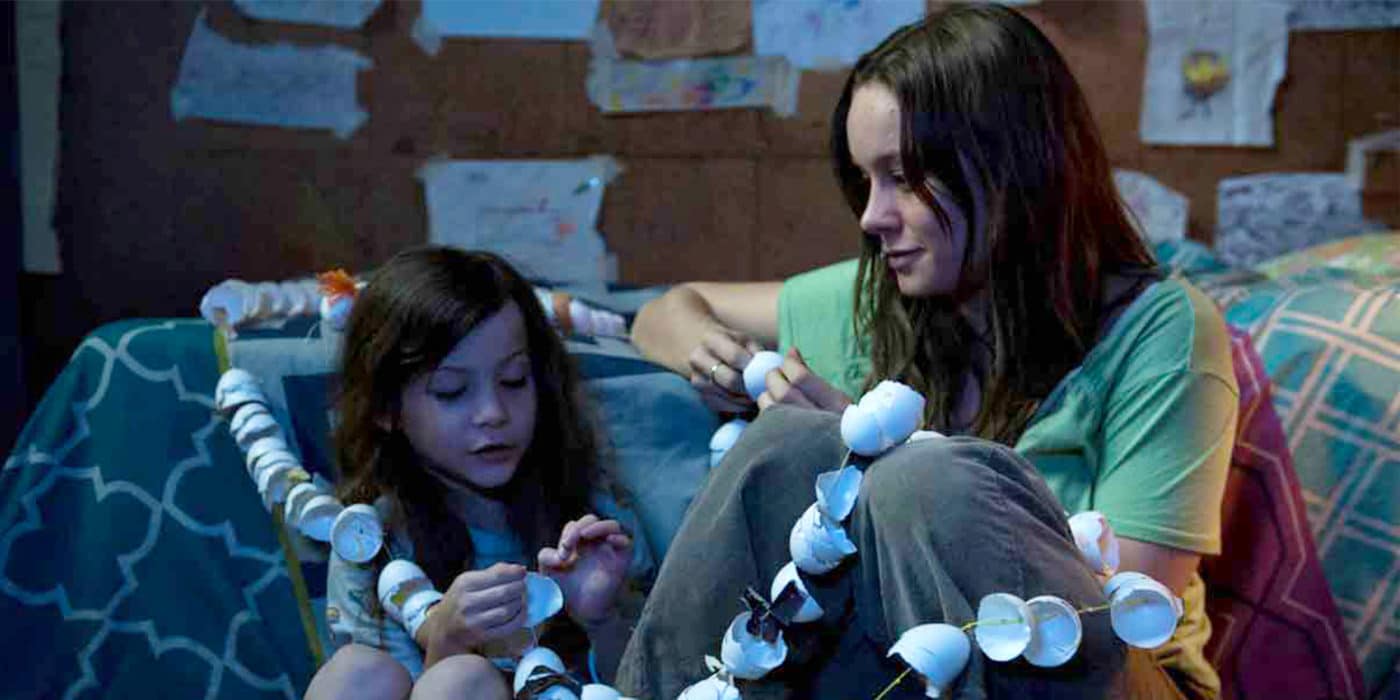For a film to take as its starting point the years-long forced confinement and rape of a young woman and make it beautiful without disconnecting or becoming saccharine, is a tall order. By some accounts, the likely Oscar nominee Room manages. But not everyone agrees.
The premise of the story is that five-year-old Jack (Jacob Tremblay), born to his mother as the result of ongoing rapes by her captor, has lived his entire life in a twelve-foot-by-twelve-foot room (a heavily reinforced and soundproofed garden shed) and has no idea that anything beyond that room is real. Room is his world. Its citizens include Bed, TV, Lamp, Rug, Wardrobe, Eggsnake (a long garland of eggshells on a string), Skylight and Meltedy Spoon; and his mother. It is visited in the night by his mother’s captor, Old Nick (Sean Bridgers), while Jack lies hidden in the wardrobe, pretending to sleep and silently counting the creaks of the bed.
Joy Newsome (Brie Larson), Jack’s Ma, having exhausted her hopes of escape in the two years before Jack was born, has chosen to let Jack believe at first that Room is all there is. There is fun and laughter as they play together – washing their clothes in the tub while they take a bath, adding more eggshells to Eggsnake as they prepare food – such that Jack never imagines he’s missing out on anything. But Jack is getting old enough to start asking questions Ma can’t answer so easily… and a change in Old Nick’s situation means staying in Room is becoming dangerous.
The escape is a lot to ask of any five-year-old, let alone one who has never been out in the world. But it works, and now Ma and Jack must learn how to integrate back into “normal” life – Jack adjusting to a huge, chaotic and overwhelming world beyond Room, and Ma picking up the threads of a life interrupted in her teens and dealing with the rage, grief and trauma of her time in captivity. The film shows the challenges both face, and how they still ultimately manage to find happiness and a sense of gratitude for what is.
The film is based on the book by the same name by Irish author Emma O’Donoghue. Despite the fact that O’Donoghue herself wrote the screenplay, the story feels very different on screen from what comes through the book. Perhaps because of Jacob Tremblay’s acting that infuses almost everything he does with a sense of wonder, Jack in the film does not seem as scarred as Jack in the book. Jack of the book is deeply obsessive, attached to routine, pants-wetting terrified in the escape, devastated to learn he cannot return to Room, physically clumsy as he learns to move in spaces larger than twelve-by-twelve, and insists on reclaiming some of the items from Room after the escape to give him a sense of comfort and familiarity. He does learn to embrace life as it is, but the novel shows just how much work that is for him.
The final scene where Jack and Ma revisit Room at his request to say goodbye is shown to be wrenching and traumatizing for Ma in the book, yet in the film Ma seems able to selflessly allow Jack to get closure from the only home he knew. The film also smooths down a couple of other hard edges from the book, but I won’t spoil either for you by listing them here.
Because of this smoothed-down story, the extent to which people have found this film inspiring is actually a bit troubling. It feels as though it is play-acting the recovery from a horrific scenario (one apparently based on the Fritzl case) to inspire people who have no experience with such violence. My sense from friends who have experienced trauma is that they found Room a little too easily bright, a little too innocent, a little too co-optive of the horror without truly understanding the wreckage such brutality leaves. For this reason, while the acting and cinematography of Room are unquestionably excellent, I’m hesitant to give it a wholehearted endorsement.












